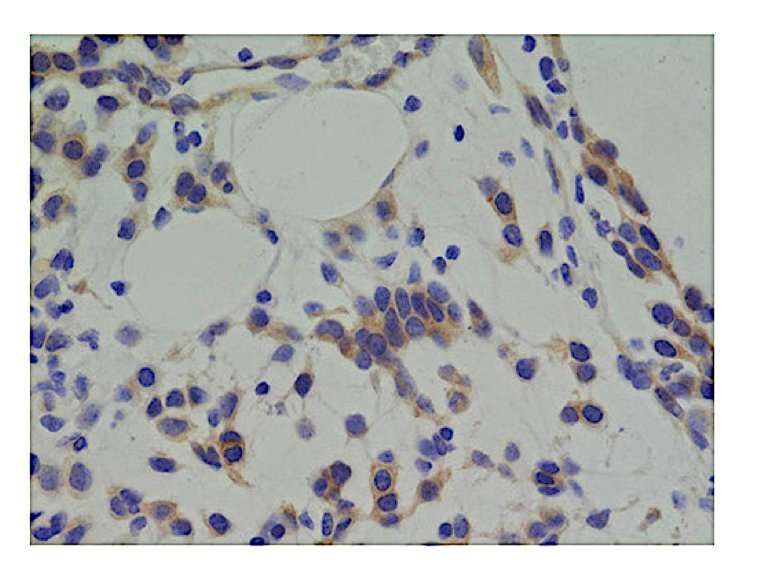Researchers find a pathway that leads to resistance of aggressive brain tumor treatment

Glioblastoma multiforme is one of the most common and deadly brain tumors. Despite the initial responsiveness to state-of-the-art therapies, tumors virtually always become resistant and eventually recur. Researchers at Dartmouth's Norris Cotton Cancer Center, led by Damian A. Almiron Bonnin, MD-Ph.D. candidate of the Mark Israel laboratory, are devising strategies to prevent brain tumors from becoming resistant to anti-tumor drug treatment.
"In this study, we have successfully identified a pathway that mediates the resistance of the most aggressive brain tumors, glioblastoma multiforme, to targeted anti-tumor drugs," says Almiron Bonnin. "Importantly, there are drugs currently available that can block this pathway to resistance."
The study finds that insulin signaling functions as a "tumor-growth signal" in brain cancer cells that have been treated with a targeted anti-tumor therapy, thus allowing the tumor to grow despite continued treatment. Blockage of insulin signaling under these circumstances prevents therapeutic resistance. This strategy may increase the effectiveness of targeted therapies in brain tumors and ultimately prolong the survival of patients with this type of tumor. The team's work: Insulin-Mediated Signaling Facilitates Resistance to PDGFR Inhibition in Proneural hPDGFB-Driven Gliomas was recently featured on the cover and published in Molecular Cancer Therapeutics.
"The tumors we are studying are the most common and aggressive non-metastatic brain tumors in adults and children. Currently, there is no curative therapy to treat this type of cancer," says Almiron Bonnin. "Consequently, brain tumors are responsible for 25 percent of all cancer-related deaths in children and young adults. They quickly develop chemotherapeutic resistance, so current specific treatments are largely ineffective. In our lab, we are trying to understand what mediates drug resistance at a cellular level, so we can then devise more effective therapies. We identified a key component of the pathway that renders this resistance, and proposed a new strategy to address it."
Almiron Bonnin's study will lead to a better understanding of cancer mechanisms (drug resistance) that will hopefully translate into improved clinical therapies for the treatment of high-grade gliomas. Looking ahead, the research team is beginning to develop new and potentially more effective approaches utilizing targeted therapy for high-grade brain tumors based on their understanding of the mechanism by which tumors develop resistance to treatments.
More information: Damian A. Almiron Bonnin et al. Insulin-Mediated Signaling Facilitates Resistance to PDGFR Inhibition in Proneural hPDGFB-Driven Gliomas, Molecular Cancer Therapeutics (2017). DOI: 10.1158/1535-7163.MCT-16-0616















